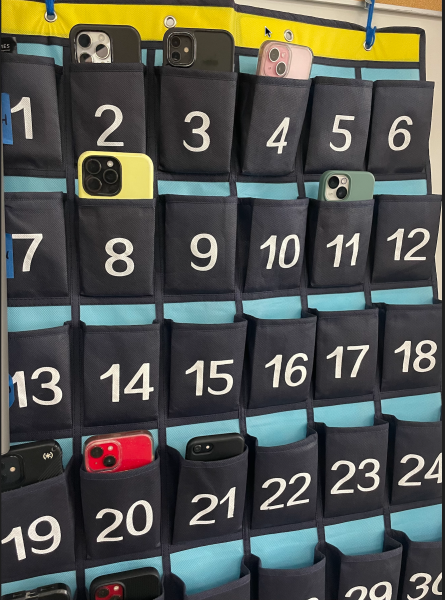Stopping the “senior slide”
Every year, schools suffer the same phenomenon, the so-called “senior slide.” Seniors, close to graduating, begin to experience a decrease in work ethic, a decline in grades, and an increase in absences.
As a senior graduating in June, I see why “senioritis” is a thing. After 12 years of school, doing assignments for a grade and then moving on to a new unit is boring – it’s time for something new.
The thought of college in the near future is also something new, but high school is still in the way. However, there is a way for schools to prevent the “senior slide” and instead have seniors finish the year stronger than ever.
“For many students, the senior year isn’t as productive, stimulating, and challenging as it needs to be,” said William L. Livrera, the Pennsylvania State Commissioner of Education.
Seniors find themselves doing busy work, or assignments that don’t add up to much value or points in the gradebook. Over time, students procrastinate with assignments or don’t do them at all, leading to a decline in grades.
The problem is — and many seniors don’t realize this — that colleges will still look at the senior year on a transcript even if a student has already been accepted/enrolled. This can lead to missed opportunities for scholarships or even a college withdrawing their acceptance offer.
The senior year of high school shouldn’t just be about finishing up the required credits to graduate. Instead, it should be tailored to that individual student and their future. It could be the career that they plan on going into or the place they are going to live.
Seniors should “take the time to investigate the communities that their future homes are in and identify a program, an organization, or an initiative” once they graduate writes ISN Education, an e-learning portal focused on webinars, online courses, and podcasts. Sam Luby, Head of University Guidance Counseling for Shanghai United International School, also suggests working with administrators on “coordinated discipline enforcement, a grade 12 Spring semester project, flex time, and peer mentoring” programs which might keep students better engaged.
Assignments and projects devoted and tailored to individual students and their futures allow students to prepare for the real world outside of school. The New York Times writes that students can do “internships, work or take college courses” to further their knowledge and learn new skills as they begin to transition into a new chapter of their life after graduation.
However, the senior year can be busy. Many seniors have jobs after school that take away time for doing homework. Also, preparing for college is not an easy feat. Applying for schools and scholarships takes time. Writing applications and essays require hours.
The busy work due to small assignments that instead could be more individualized does not necessarily need to be hard. A student that is more interested in the assignment because it relates to them makes it so much easier than one that essentially has no purpose.
The “senior slide” does not need to exist, but it does because of the way the high school education system is set up. If 12th grade was more tailored to the individual student and their future, then maybe “senioritis” would be cured. That’s not an easy feat in such a big school, but it’s worth a look.








